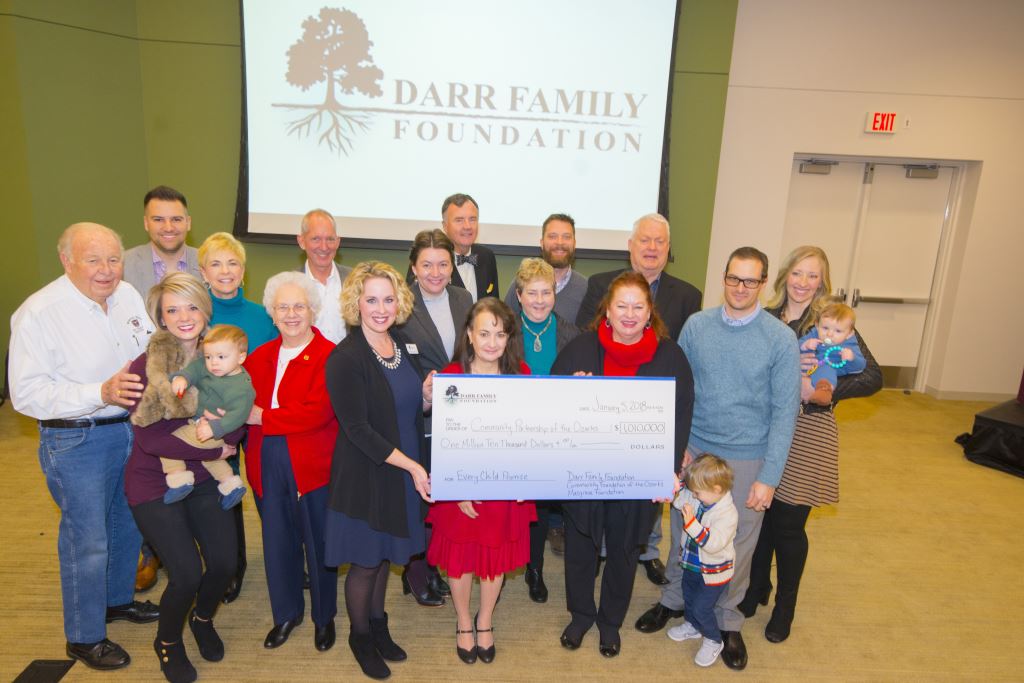It took longer than the original five years, but a grant to boost early childhood education was able to make an impact.
Officials with the Darr Family Foundation this month released a final impact report on a $1.1 million grant awarded to Community Partnership of the Ozarks. The grant funded programs to address shortcomings faced by preschool and kindergarten students.
The impact of that money was slowed by the COVID pandemic, but eventually over-delivered, said Heather Zoromski, executive director of the foundation.
“We had about five years of actual boots on the ground work, then we took six months for data collection,” Zoromski said. “Considering pandemic challenges, and how we couldn’t even get into schools, we’re delighted with how this turned out.”

The Steps to Excellence program targeted two red flags about early childhood and education, listed in 2015’s Springfield Greene County Focus Report: kindergarten readiness, and achievement and opportunity gaps. It focused on at-risk students who were either from low-income families, dealing with racial disparities, language barriers or a disability.
Awarded in 2016, the funding helped provide 272 scholarships, benefited 57 preschools and provided literacy and social-emotional assessments for 23 schools in Springfield Public Schools, mostly in Central High School’s sending zone. It also offered training for students at Missouri State University, Ozarks Technical Community College and Drury University.
“We wanted to look at those things keeping kids from learning,” Zoromski said. “Maybe they weren’t necessarily academic, or were cost-prohibitive. There are so many situations where if we can give kids tools in their tool belt, we can help them get ready to learn, so they will be more successful.”
According to the foundation’s final report, progress was made on some key goals:
- The grant served 12,082 students from pre-K to college. The original goal was for only 2,300 students.
- An improvement in social emotional competencies among teachers and students from pre-K to third grade. According to the DECA Social-Emotional Assessment, the number of students in the “competent” designation increased from 87% in 2018-19 to 88% in 2021-22.
- The number of third-graders reading at grade level improved from 35% in 2019 to 51.4% in 2021-22. The report acknowledges that keeping track of students who received the program’s training was difficult, however, and labeled its impact as “indeterminate.”
Zoromski said recent reports on key statistics measured by the school district also showed some of the funding’s impact. Officials with Davis Demographics noted a strong pre-K enrollment when making a report to the Springfield Board of Education in November.
“Through the DECA assessment, we saw discipline and suspension rates decline at Pipkin Middle School,” Zoromski said. “And we just saw that their MAP test scores increased.”
There is still work to do, according to the report. With a report of 75.3% of Springfield kids considered ready for kindergarten, a goal of boosting that number to 85% was not met.
Zoromski said the foundation is considering future funding, especially toward conscious discipline training. Part of social-emotional learning concepts, conscious discipline involves making sure a student is emotionally aware enough to learn about their behavior and consequences.
Access to child care is another issue of focus, but Zoromski said the foundation is interested in approaching it as an economic issue alongside other approaches.
“Child care is a workforce development issue for the city, and we’re excited to see the (Springfield Area Chamber of Commerce) get involved in looking at it in the same way,” Zoromski said. “We’re excited to learn more about what other communities are doing, so we can adopt things locally.”

